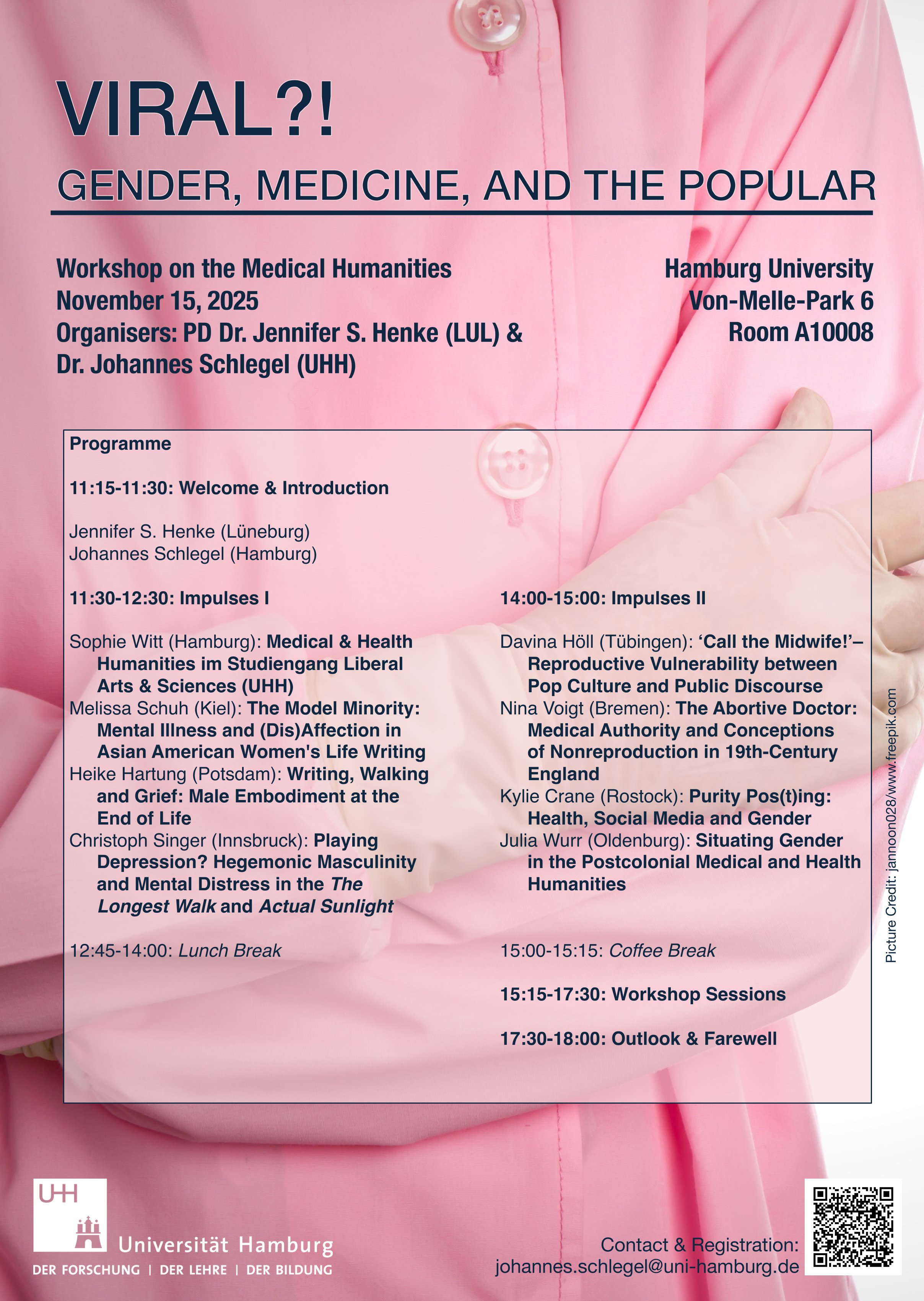Workshop “Viral!? Gender, Medicine, and the Popular“

Medicine, its practices and various narratives of health and illness have always been virulent topics in popular culture. Pertinent examples come to mind readily and are, in fact, too numerous to count. And while a plethora of research contributions have extensively investigated gender as a key factor for either of these fields – the medical and the popular, respectively – their entanglements and triangulations remain understudied. The workshop aims at analyzing how pluralistic forms of medical knowledge, practices, and techniques have historically circulated – and continue to circulate – through artefacts of the popular, with a particular focus on gender. Which popular forms, media, communications and semantics are updated in the dispersion of medically gendered narratives? And what manifest or latent, present or past, residual or emergent knowledge is popularized? Which gendered practices become pathologized or vindicated in popular media?
Unlike previous key studies, which have concentrated on medicine and popular culture in a single period, this workshop seeks to broaden the historical scope. We therefore welcome contributions that deal not only with the Victorian era, for example, but, respectively, also with the early modern period, the (long) eighteenth and (long) twentieth and twenty-first centuries in Britain. In addition, we adopt a wide definition of literature and popular culture, encompassing all genres, media, and cultural practices: from chapbooks, pamphlets, household manuals, public lectures, newspapers, fairs, caricatures, songs, and folklore, to film, comics, and material artefacts such as (medical) instruments, waxworks and other objects of knowledge. We particularly encourage contributions from related fields such as postcolonial, environmental and (dis)ability studies to explore how aspects of colonialism, ecology, and embodied experience intersect with questions of gender. During the first half of the event, each participant is invited to give a short impulse of up to 10 minutes. The second half of the workshop will be devoted to a collective discussion of thematic overlaps and shared concerns.
